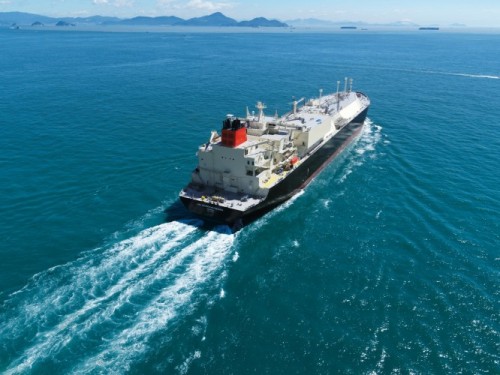Uniper revives plans for LNG terminal in Wilhelmshaven to support Germany’s move away from Russian gas
This is the second plan to speed up construction of an LNG terminal announced by German companies this week, underlining the country’s move to diversify and secure gas supplies from other sources than Russia.
 PHOTO: Uniper-chartered LNG carrier Schneeweisschen. Uniper
PHOTO: Uniper-chartered LNG carrier Schneeweisschen. Uniper
Uniper has not presented a timeline for when it expects the LNG terminal in Wilhelmshaven to be up and running, but there is an impetus from the German government to lessen reliance on piped gas imports from Russia as quickly as possible in response to outcries over Russia's war in Ukraine.
Germany imported nearly 90 billion cbm of natural gas in 2021, of which 55% came from Russia, says Uniper.
A previous plan for an LNG terminal in Wilhelmshaven fizzled out in 2020 owing to lack of demand for imported LNG cargoes, Uniper said. The company then pivoted to announce plans for a green ammonia import terminal instead last year.
In immediate response to Russia's invasion, Germany cancelled the Nord Stream 2 gas pipeline project with Russia in February. Uniper was heavily financially exposed to the project and said this week it will write down loans totalling €987 million ($1.09 million), including interest worth €292 million ($322 million), towards Nord Stream 2.
Uniper, together with German peer Wintershall, UK’s Shell, Austria’s OMV, and France’s Engie sponsored 49% of the Nord Stream 2 gas pipeline. Russia’s Gazprom owned a 51% stake in Nord Stream 2.
Uniper is also in the process of selling its Russian subsidiary Unipro, and said it will not make any new investments in Russia.
On Monday, German lender KfW, Dutch energy infrastructure company Gasunie and German utility company RWE said they seek to fast-track construction of a planned 8 billion cbm capacity regasification LNG terminal in Brunsbüttel.
“Here, we need to reduce our dependence on imports from Russia as quickly as possible; Russia’s war of aggression against Ukraine is now making this imperative,” said Germany’s minister for economic affairs and climate action Robert Habeck.






